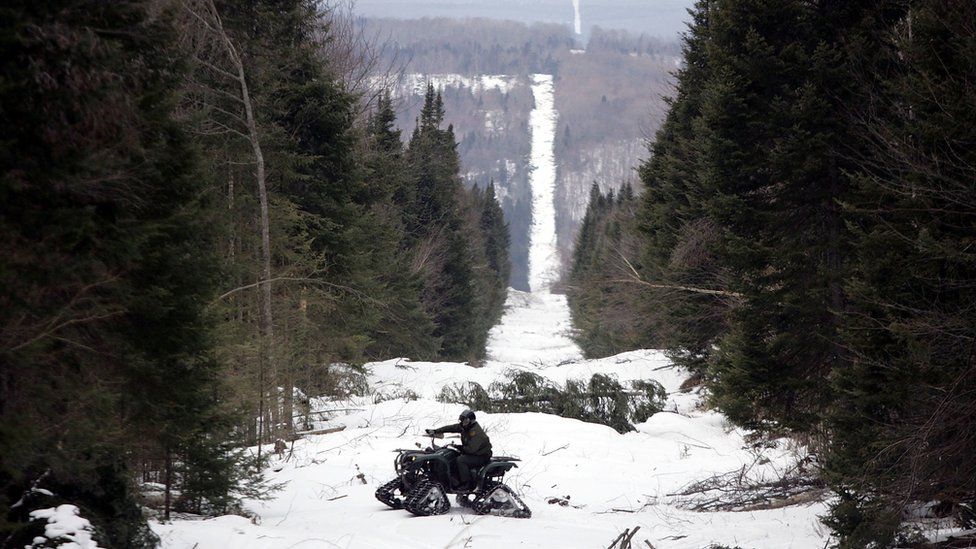US-Canada border crossing 'worse for minorities'
- Published

A recent poll shows that Canadians are afraid of what Donald Trump's presidency will do to cross-border travel, especially if they are visible minorities.
At almost 9,000km long, the Canada-US border is the longest in the world.
More than 300,000 people cross it every day.
While most people surveyed reported good border-crossing experiences, about half are worried about how President Trump will affect travel.
Angus Reid surveyed about 15,000 Canadians in January on their border experiences in 2016 in general, and their opinions on how the election will impact their travels.
Almost 86% said that their experience crossing into the US last year was good overall. They reported similar satisfaction with wait times, and their interactions with border agents.
But that rosy picture changes if you're a visible minority or young, the survey found. Among self-identifying visible minorities, the percentage reporting a poor experience rose from 14% to 25%. Young people under 35 also were more likely to have a bad experience, with about one in five rating their overall border crossing as poor.
Since his inauguration in January, Mr Trump has made drastic changes to immigration policy, announcing that he will build a wall between the US-Mexico border, and promising "extreme vetting" measures to "keep radical Islamic terrorists out of the US".
This has people nervous. The survey found that 48% of Canadians think Mr Trump will make travelling to the US worse, 49% either don't know or think he won't make a difference, and only 3% thought he would improve the border experience.
Visible minorities were more likely to be pessimistic about what a Trump presidency might do for their travels: 57% said things will get worse, while only 36% didn't know or didn't think he'd have an impact.
Perhaps somewhat surprisingly, visible minorities were also more likely to think Mr Trump would make things better, with 7% of people who self-identify as a visible minority believing the border experience would improve, compared to just 2% of non-visible minorities.
- Published11 November 2016
- Published6 January 2017